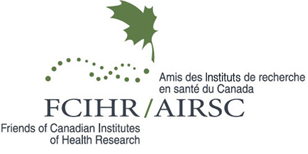Archives – External News Postings
Pat Lafferty – Comments on Mr. Ignatieff and the Liberal Party position on the creation of jobs among youth – January 27, 2010
Congratulations to the Hon, Michael Ignatieff and the Liberal Party of Canada for last week’s job creation proposals. The use of tax policies that encourage Flow-Through Shares and Limited Partnerships have been instrumental to the growth of our energy and mineral sectors for more than 30 years. Opening up comparable opportunities to let individual investors participate in other innovative high risk sectors is long overdue.
1. The lack of public funding, typically in the range of 1 to $3 million, to take promising opportunities through the early stages of pre-clinical research with animal models, toxicity testing, infrastructure development or Phase I trials. Existing peer review processes are reluctant to allocate money from basic science. The most developed countries have dedicated pools of public money for that purpose.
2. The lack of high risk private investors to take promising opportunities into Phase II trials, or proof of concept design and testing, usually in the 2 to $4 million range. Existing tax incentives are not available to individual investors, families and friends whose principal business is not research, and are only generous to profitable international companies who already have globally established research programs and priorities; and,
3. Avoidable delays in regulatory and ethics review processes.
We need to make up for lost time, and support those public policies that try to make up for lost time. Our economic competitiveness, careers for our youth, our health and our health care are at risk. Every urban centre has been missing significant health industries job opportunities. We can only hope that these policies will see the light of day.
Globe & Mail – January 28, 2009
Money for bricks, but not talent
University researchers say there isn’t enough new funding to close
the gap with American universities
Elizabeth Church and Daniel LeBlanc
TORONTO, OTTAWA — Ottawa is giving Canadian campuses billions for brick and mortar projects, but yesterday’s budget offered few assurances to universities that they will have the money needed to fill those refurbished labs and lecture halls with top talent.
To access the full article, click on the link below.
 Globe & Mail – Budget 2009 Article
Globe & Mail – Budget 2009 Article
—————————————-
Budget 2009 Highlights and Challenges Ahead – Research Canada
At a Glance
Big spending is the primary theme of the 2009 Federal Budget with $43 Billion on economic stimulus committed over the next four years. Mitigating the economic recession in Canada will largely be determined by how quickly the measures proposed in Budget 2009 can be implemented and what their impact on job creation and overall economic growth will be.
To access the full article, click on the PDF below.
 Research Canada – Budget 2009 Highlights Article
Research Canada – Budget 2009 Highlights Article
—————————————-
Canadian Academy of Health Sciences – January 2009
Report of the Panel on Return on Investment in Health Research
The majority of Canadians recognize that health research is one important mechanism by which significant improvements in disease treatment, evidence-based disease prevention, and health promotion are achieved, and most support the requirement for health research to be conducted. Investments in health research thus have increased significantly across Canada (and globally) during the past decade. Naturally, and justifiably, with greater investments have come increased expectations for returns.
To access the full report, click on the PDF below.
 CAHS – Return on Investment Report
CAHS – Return on Investment Report
—————————————-
MESSAGE FROM THE PRESIDENT – January 21, 2009
President Obama’s inauguration yesterday was a thrill to observe and the after-glow is exhilarating. We witnessed a renewal of high values, along with a call to service. His speech is a must-read. I include an excerpt (scroll down) from his speech that resonates well with our professional and institutional ideals, as it highlights the primacy of knowledge generation, education and health care. I encourage you to forward this message to your MPs and academic leaders to help them anticipate S & T priorities in the American agenda.
It is of interest that Dr. Harold Varmus, the 2008 H.G. Friesen International Prizewinner, was appointed in December 2008 by President Obama to his Advisory Council on Science and Technology. We learned during Varmus’
Inauguration – The Speech, President Barack H. Obama
Tuesday, January 20, 2009,
(An Excerpt)
“Everywhere we look, there is work to be done”
“For everywhere we look, there is work to be done. The state of the economy calls for action, bold and swift and we will act – not only to create new jobs, but to lay a new foundation for growth. We will build the roads and bridges, the electric grids and digital lines that feed our commerce and bind us together. We will restore science to its rightful place and wield technology’s wonders to raise health care’s quality and lower its cost. We will harness the sun and the winds and the soil to fuel our cars and run our factories. And we will transform our schools and colleges and universities to meet the demands of a new age. All this we can do. And all this we will do.”
—————————————-
March 20, 2008
For immediate release
Minister Clement Announces Appointment of President to the Canadian Institutes of Health Research
OTTAWA – The Honourable Tony Clement, Minister of Health, today announced the appointment of Dr. Alain Beaudet as President of the Canadian Institutes of Health Research (CIHR), effective July 1, 2008.
“I am certain that Dr. Beaudet’s extensive management experience and strong health science background will be of great benefit to the CIHR,” said Minister Clement. “His proven track record as a leader in brokering partnerships between federal and provincial health research organizations and funding agencies makes him well-suited for his responsibilities as President, and will ensure the Institutes continued stewardship in research.”
The Minister also expressed his gratitude to Dr. Pierre Chartrand for Acting as President since fall 2007 and thanked him for his contributions to the CIHR.
Dr. Beaudet holds a medical degree and a Ph.D. in neuroscience from the UniversitĂ© de MontrĂ©al. He did postdoctoral training at the Centre d’Ă©tudes nuclĂ©aires in Saclay, France, and the University of Zurich’s Brain Research Institute in Switzerland. Returning to Montreal in 1980, he taught in McGill University’s Neurology-Neurosurgery and Anatomy-Cell Biology departments, and went on to become assistant director of research at the Montreal Neurological Institute (MNI). He also served as president of the Canadian Association for Neuroscience from 1995 to 1997. More recently, Dr. Beaudet served as the director of scientific affairs and programs at the Fonds de la recherchĂ© en santĂ© du QuĂ©bec (FRSQ) from 2000 to 2004, and was appointed as president and chief executive officer of the FRSQ in 2004.
Throughout his career, Dr. Beaudet has received numerous grants and distinctions, served on a number of health and research related committees both in Canada and internationally, and has published extensively in leading academic journals.
The Canadian Institutes of Health Research (CIHR) is the Government of Canada’s agency for health research. CIHR’s mission is to create new scientific knowledge and to catalyze its translation into improved health, more effective health services and products, and a strengthened Canadian health care system. Composed of 13 Institutes, CIHR provides leadership and support to close to 11,000 health researchers and trainees across Canada.
Media Enquiries:
Laryssa Waler
Office of the Honourable Tony Clement
Federal Minister of Health
(613) 957-0200
Public Enquiries:
(613) 957-2991
1-866 225-0709





